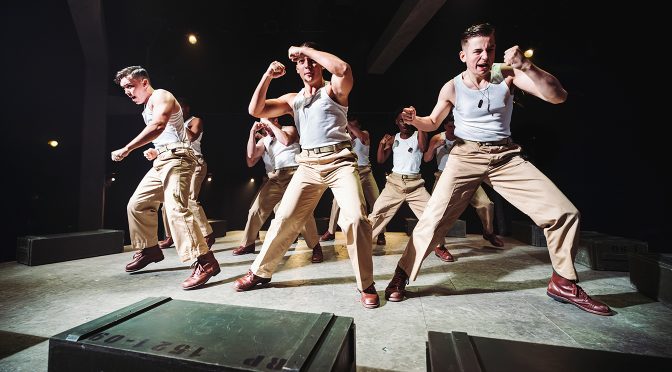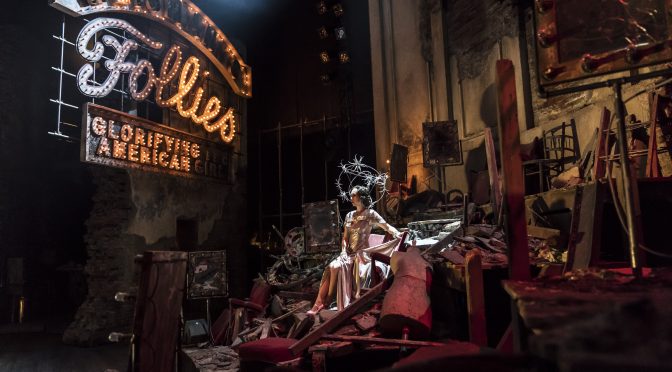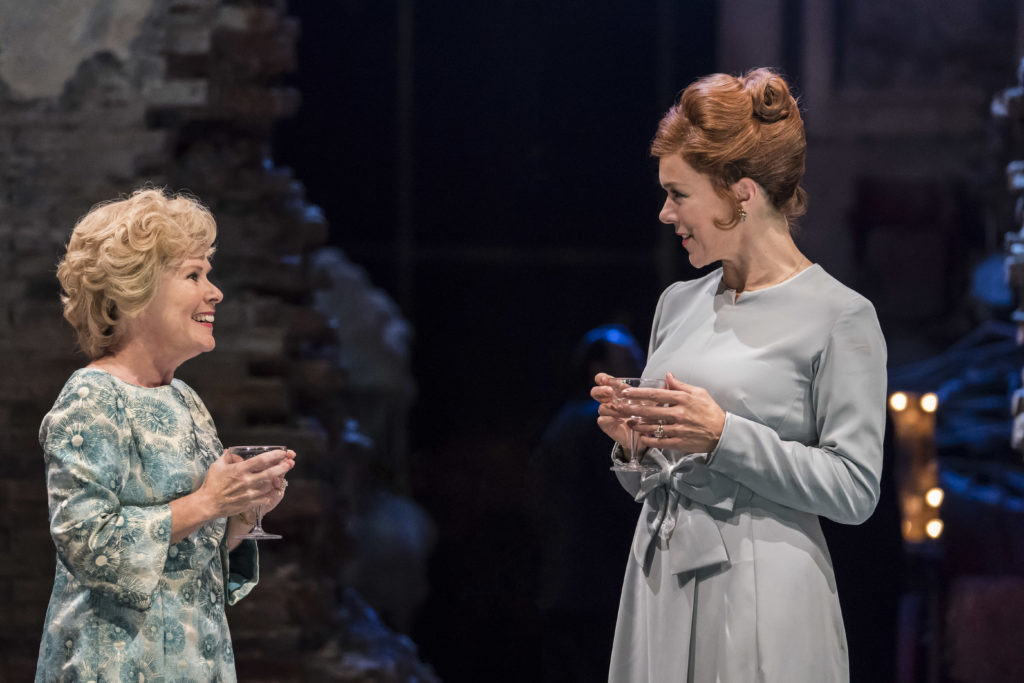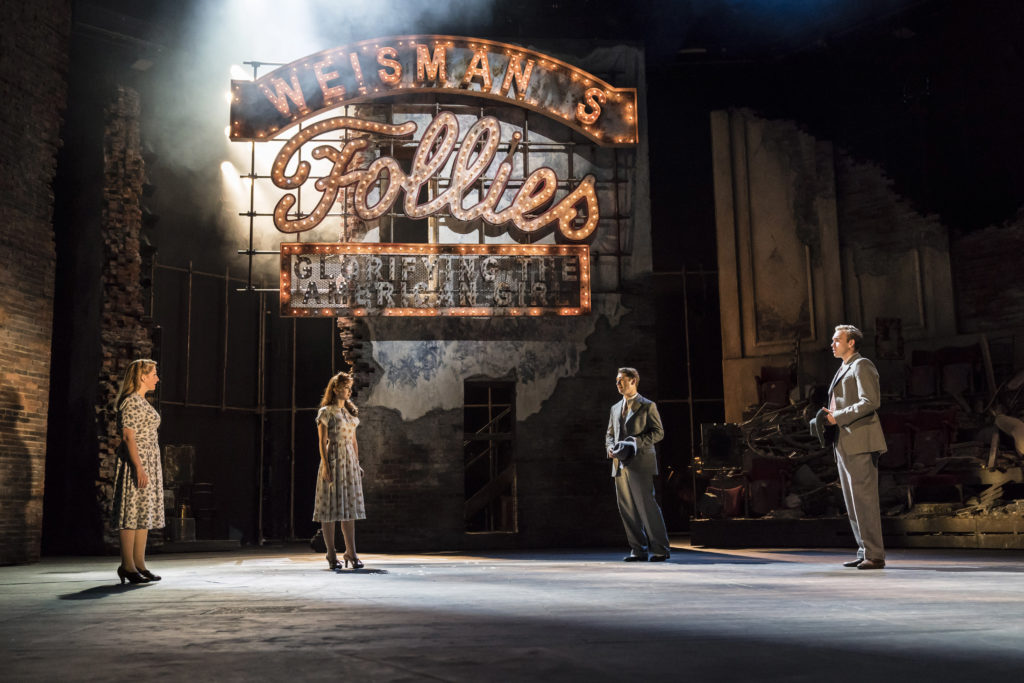This first London revival of the musical by Stuart Brayson and Tim Rice has admirable qualities but unfortunately highlights some of the show’s shortcomings. It’s set on the eve of Pearl Harbour, where the love lives of bored soldiers, more interested in boxing than war, is a little too much like a soap opera. The book, by Donald Rice and Bill Oakes, is impressively adult but rushes the action. And the production, directed by Brett Smock, follows suit, splurging on plot and leaving little time for emotion.
The music might not be the most memorable, but Brayson’s songs are good and the score coherent. The new orchestration from Nick J Barstow is bold. And the performances are enjoyable. But the effort to inject energy is too transparent. There’s a lot of soldiers running around and far too much moving the boxes that make up a big part of Stewart J Charlesworth’s design. Scenes feel truncated – snapshots of army life – and are occasionally confusing.
Nervous rather than macho is the atmosphere. The show has something to say about masculinity and war, but gives us little time to think. The roles of Warden and Prewitt are interesting and Adam Rhys-Charles and Jonathon Bentley, who take the roles, sound great, though neither holds attention for long. We are on to another scene too quickly, too often. The build-up to the bombing, clearly designed to provide structure and tension, is overworked and underdelivers.
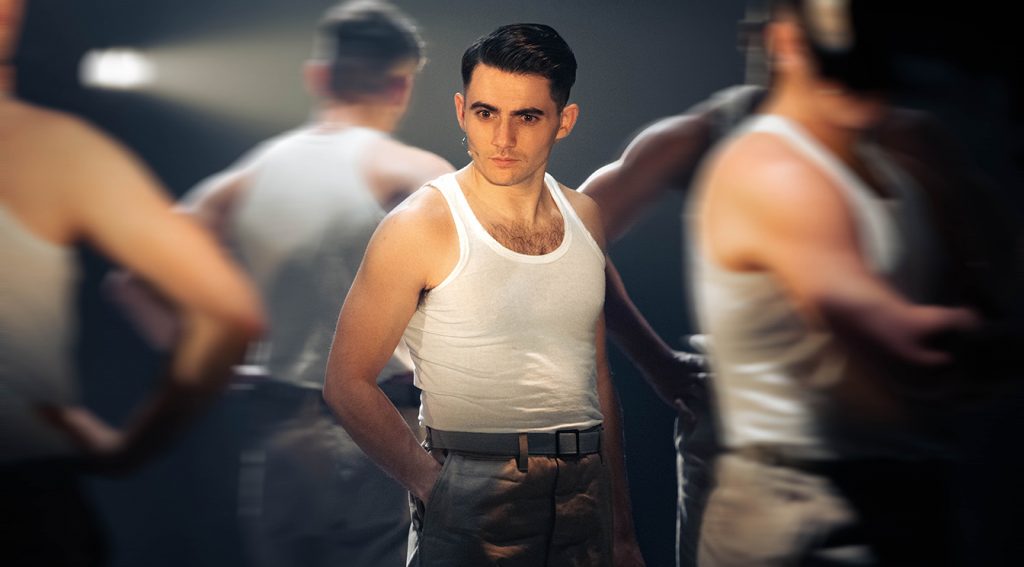
The cast has plenty of young talent to enjoy and they acquit themselves well. There is a sense of life in the barracks that is tense if not particularly detailed. Jonny Amies as Maggio, “the Joker of the pack”, is smart not to force the show’s attempts at humour and ends up a moving figure. But more experienced performers do shine. Alan Turkington makes the role of the cuckolded Captain work. And Eve Polycarpou, who plays the show’s brothel owner, makes her number (not the strongest) stand out.
The women in the piece – despite being outnumbered – are the highlight. There are strong performances from Carley Stenson and Desmonda Cathabel as the love interests, who inject some much-needed pathos. The songs are sometimes hampered by the lyrics – serviceable yet uninspired – but the delivery is good. The singing gets better and better. But there’s still the problem of just too much going on that feels rushed through or episodic. Storylines have to be resolved even quicker than they were set up. This leaves a poor impression of good show.
Until 17 December 2022
Photo by Alex Brenner

